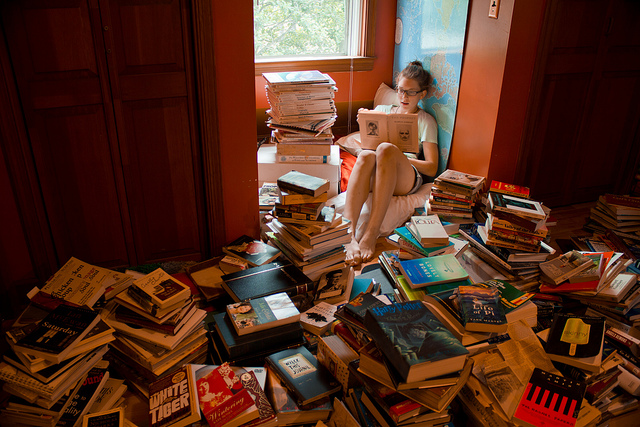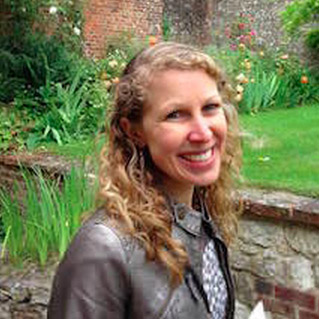The first thing people usually say when they walk into my apartment is some variation of, “Do you really not have a TV?”
The lack of television is quite noticeable in my tiny home, and I always enjoy the incredulous comments from new-comers.
My couch faces a bookshelf.
While that may seem boring and static compared to a television at first, if you look just a little bit closer the view is quite extensive.
The titles, characters, adventures, and wisdom held within the many pages on my bookshelf helped to shape my life and make me the person I am today, just as the books all of us read shape our understanding of the wider world, and often become chapters of our own lives.
It’s sometimes said that our life is our own story, being continually written by ourselves, but I prefer to think of mine as an entire library: a motley mess of assorted tales. Some short stories, some verbose novels, others poems, songs, research essays.
They might seem random at first, but are connected by their connection to me: to who I am, and who I was. While these personal and inner journeys may never find their way to the New York Times Best Seller List, they are reflected by the actual physical books, journals, and poems stacked all over my home.
We use the stories that we read to write our own stories.
The Harry Potter series rests on the top shelf, in some ways simultaneously representing hope and vulnerability, a sign of my imagination, or a soft spot that I’m not always sure I want people to see. They are the books that made me love books, books that made me decide to be an English teacher. I don’t love them because I think I’m a wizard or want to go to a magical school (ok maybe a little).
I love them because they made me understand that love always conquers hate, that friendship is essential, and that we must always keep fighting for the good side, no matter how hard. Novels are so often disregarded as trivial entertainment, but they are really just snippets of the world, shared with us to help us understand life a little better.
Sometimes thinking about the books we read in our past can help us see where to go in the future.
As a kid, at night I’d wait until my parents’ light turned out before switching on the tiny lamp by my bed to escape into whatever my current book adventure was, fully absorbed in the story with a single-mindedness that only exists in one so young. In sixth grade I decided to take on the classics, alphabetically, checking out the collected works of Jane Austen first.
While the Harry Potter novels taught me to love books, Austen made me love words—realize their beauty, brilliance and power. I lost myself in centuries past, in worlds of balls and manners and primogeniture, worried about inheritance and women’s rights.
By escaping into books, we are introduced to words and ideas otherwise impossibly distant from ourselves. While I jumped and played and read as a five year old, inside was a soul far beyond my years. Age is just a number. Whether five or 65, you are as old or young as your heart feels.
In books we can be anyone of any age in any age of history.
They give us a chance to live out our innermost secret lives. Books allow us to try out other worlds, to figure out where we should go and what to do in reality.
Sometimes I find myself needing to look through old books, flip through pages and read passages in an attempt to trace my way backwards from where and who I am now.
Oftentimes it’s quite therapeutic, nostalgic even, to re-read the same words you once read as your past self. They haven’t changed, but we have, and maybe books can help us know how and why.
Part of our hearts can be found in the volumes that adorn our shelves, our stories intertwined with those of the characters.
We can find ourselves again in their pages, and find the inspiration to write new chapters in the books of our lives.
Relephant:
Why Reading Real Books Makes Us Smarter.
Author: Gabriella Sweezey
Editor: Khara-Jade Warren
Image: Porsche Brosseau/ Flickr












Read 1 comment and reply